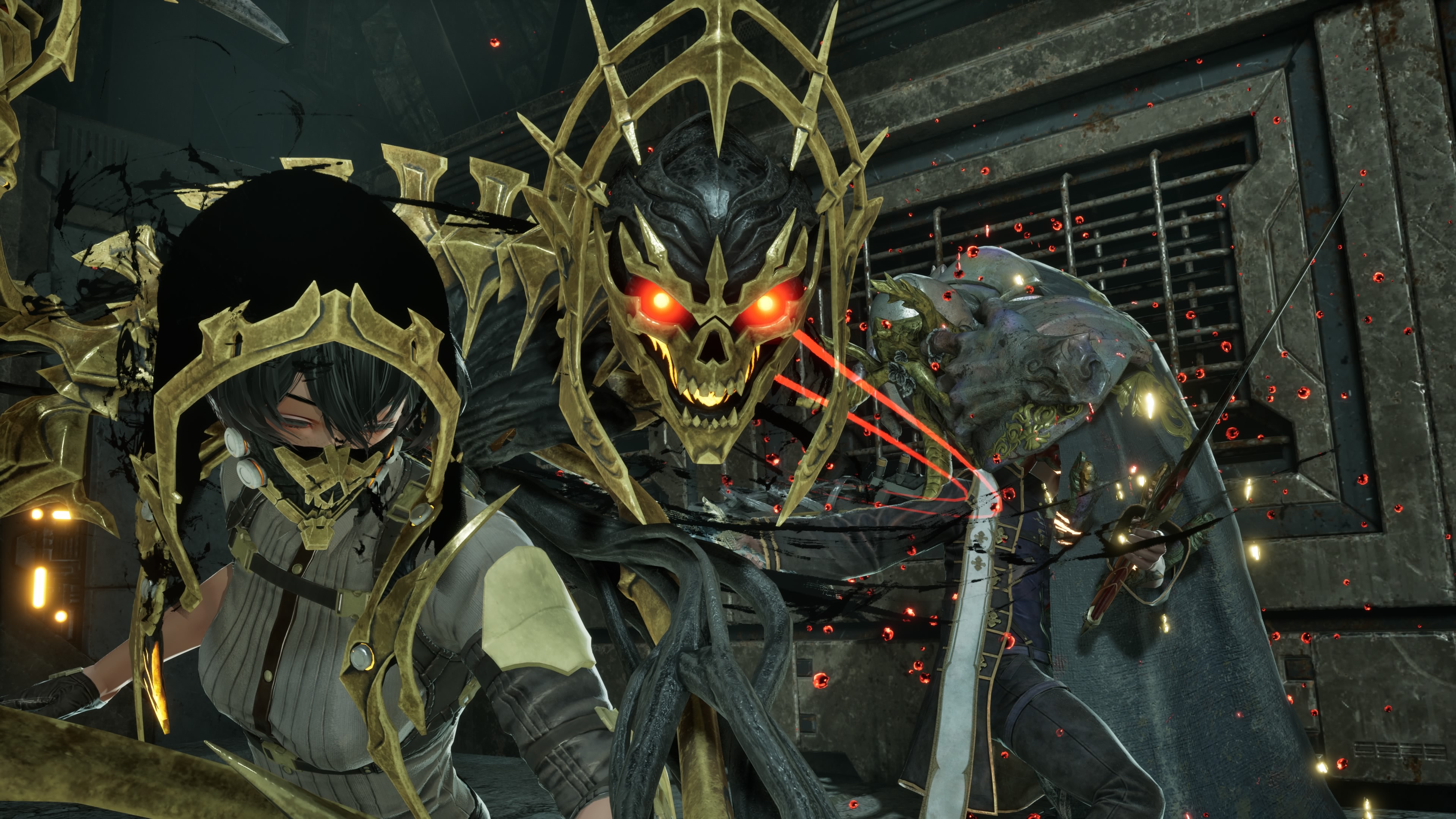Cronos: The New Dawn's sci-fi survival horror channels RE4 and Dead Space, but it took Bloober awhile to realize it 'subconsciously' is also a game about Covid
After Silent Hill 2, Bloober is returning to its roots with a Kraków-set horror game dripping with Soviet paranoia.
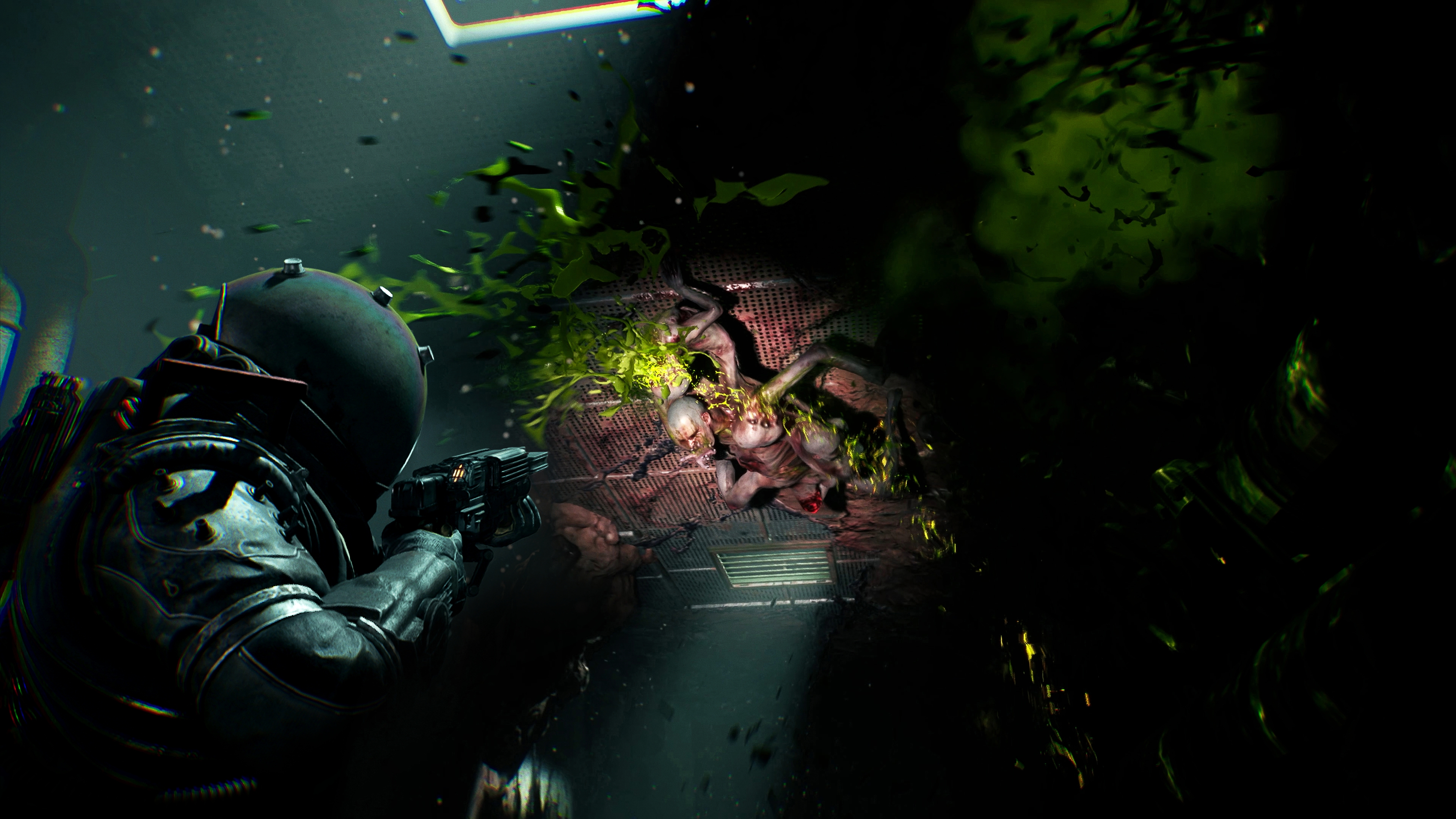
Jacek Zięba reflexively reaches for his temple as he recalls the moment he realized Bloober's sci-fi horror game, set in alt-history Poland after a deadly outbreak, was about Covid.
"We didn't want to make a game about the pandemic," the game director says. "When we started the story, it just worked for us. And at some point in the production, it was like, damn… we made something about the pandemic."
It was subconscious, Zięba says. Cronos: The New Dawn is rooted in the troubled history of post-WW2 Kraków and the toll that life in the Soviet Union took on its people during the Cold War, a consistent theme in Bloober Team's games prior to last year's celebrated Silent Hill 2 remake. The sci-fi twist is that some sort of plague struck Kraków in the 1980s, wiping out much of the population and leaving the city to decay for decades until you arrive in a BioShock-Big Daddy-meets-Dead-Space time travel suit to go diving into the past to learn more about what happened.
The plague also created a bunch of shambling guts-on-the-outside mutants jealous of your guts-on-the-inside vanity, and they all require a few explosive rounds to the head. It's a videogame, after all.
A good old-fashioned plague
When we realized we were actually venting some things, we realized we needed to approach it very elegantly
Grzegorz Like
Lead writer Grzegorz Like says that he finds he's "more honest" when he writes about the people and places he already knows intimately.
"We discovered that it really enforces the questions we want to ask, and the themes. We overthrew communism and the regime by uniting, but now we want to ask you 'what if uniting and being close was the thing that destroyed the world? What then?' We wanted the characters in the story to have difficult decisions, and the setting really enforces the drama and important questions.
"After four years of working on the game—and pre-production started during the pandemic—it was too early to say 'let's do a game about now.' That was not our intention at all. When we realized we were actually venting some things, we realized we needed to approach it very elegantly and with great caution."
Keep up to date with the most important stories and the best deals, as picked by the PC Gamer team.
"But at the same time it's horror, so tough stuff will happen," Zięba adds.
The 'tough stuff' that happened to me in Cronos's opening two hours hewed pretty closely to survival horror standards. Before I encountered my first zombie stand-in the game tried to jumpscare me with a mannequin positioned for maximum spook factor when I rounded a corner with my flashlight on. Then a sudden clattering—a monster!?
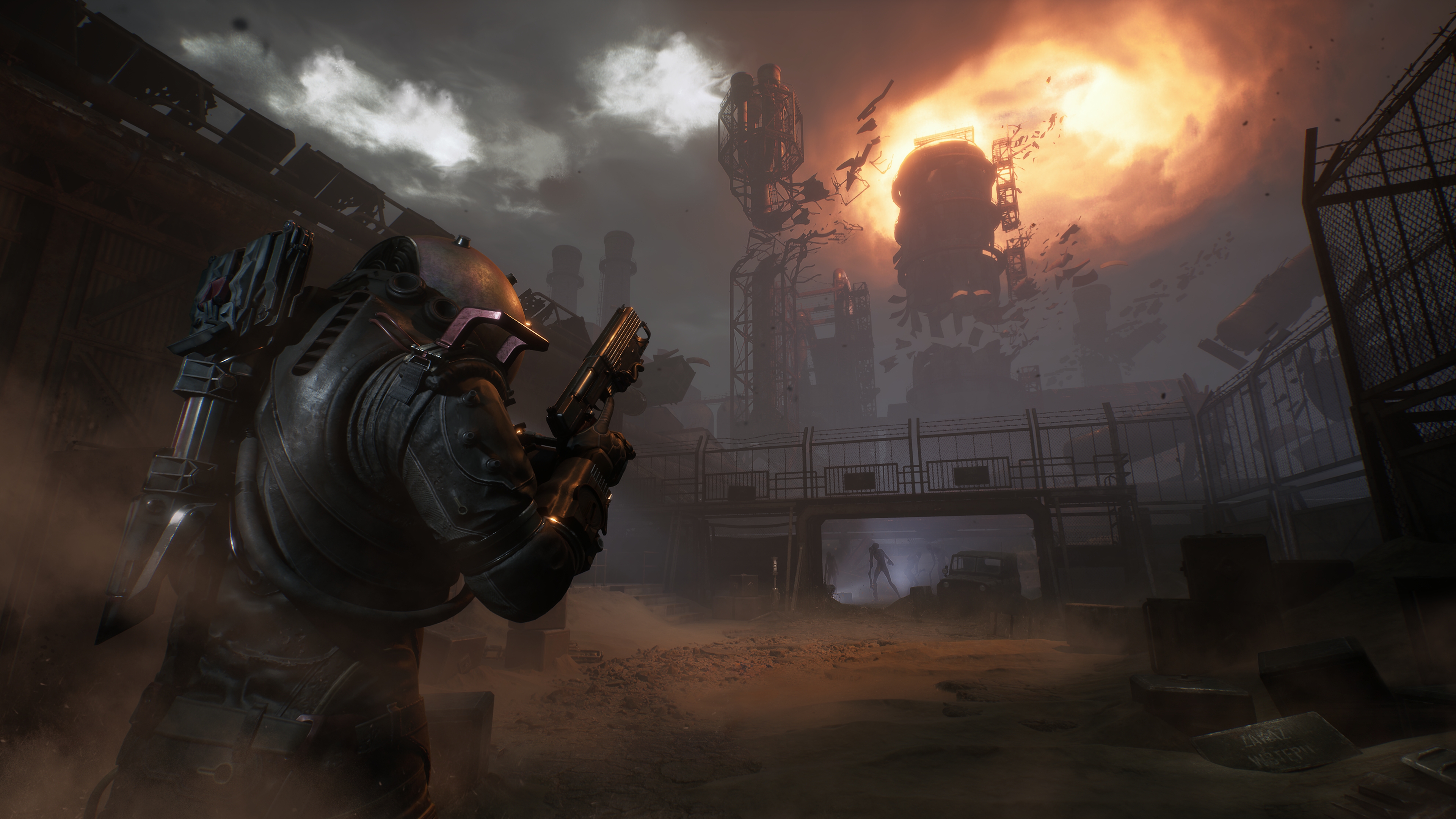
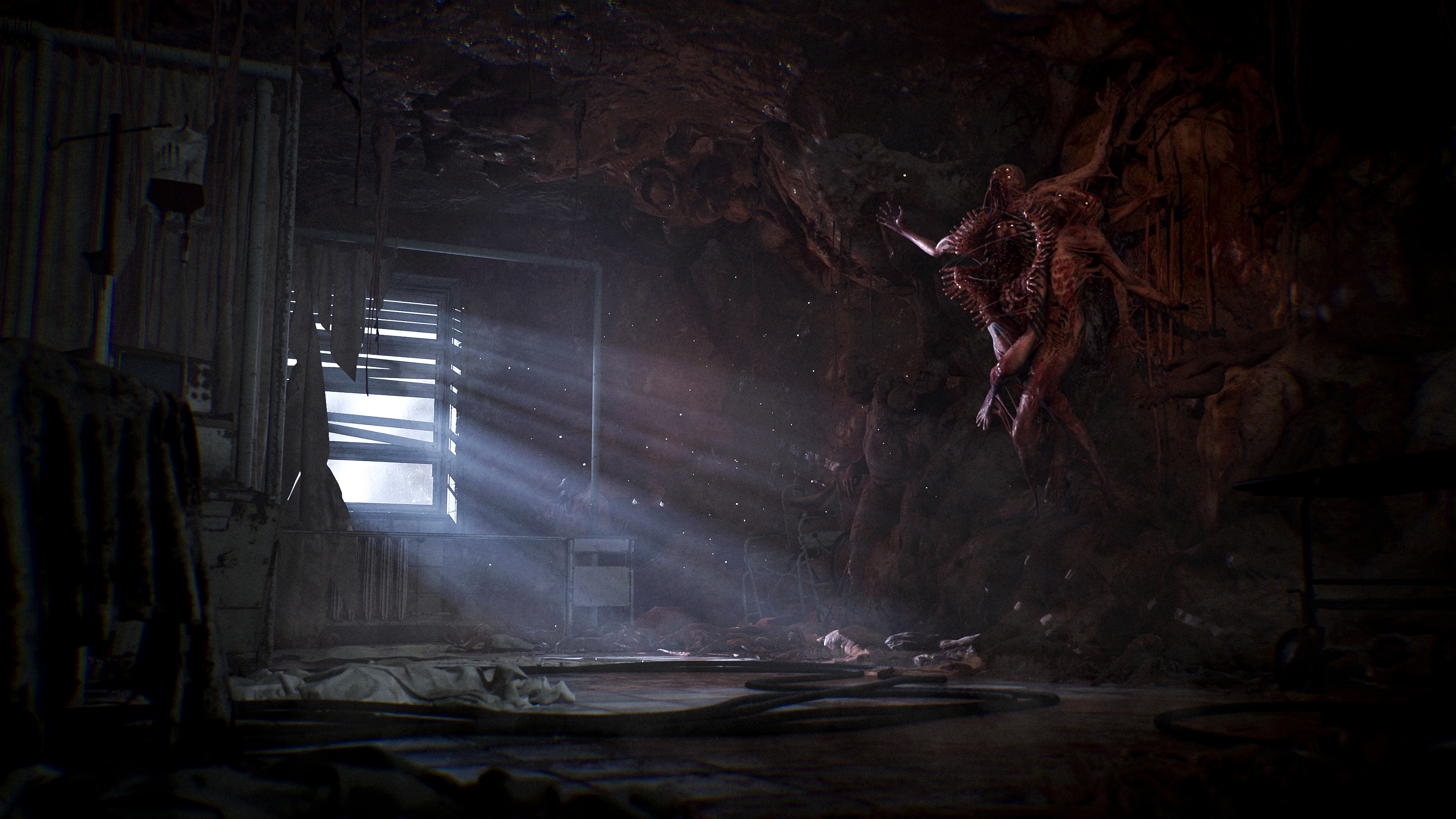
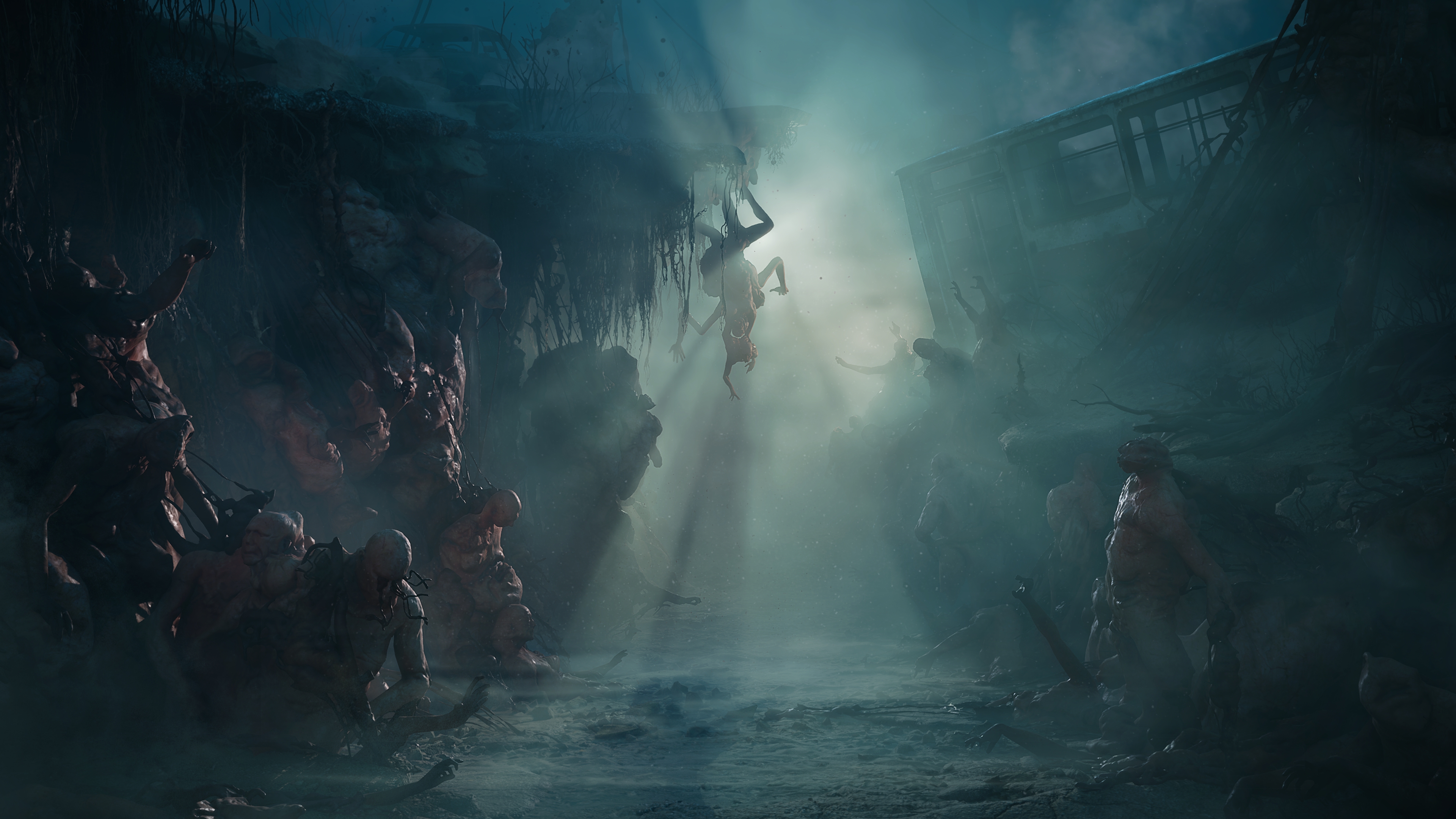
Nah—just a cat knocking something over.
When I do run into a monster, its exposed muscles pulsing and stretching to stab at me from an alarming distance, I fight back less like Resident Evil 4's Leon Kennedy and more like his grandpa with arthritic knees wearing a half-ton space suit.
I'm slow. The lumbering pace definitely sells the spooky solemnity of stomping around the devastated city, any contact with mutant flesh or even the very air around me potentially too toxic to survive unprotected. But I'm immediately pining for Leon's roundhouse kick or even his 180-degree nope-out quickturn. When I die to a monster for the first time because I tried to jog past it and end up awkwardly sandwiched between it and the wall while it bludgeons me, Cronos feels awkwardly old-fashioned.
Crononaut
We just used reality: the '80s in Poland was fucked up.
Jacek Zięba
Zięba says that their vision for Cronos started with the protagonist in this chunky, retrofuturist suit that allows them to time travel, and they've committed to it. "We do everything we can to respect that and don't break the immersion.
"If you don't reposition, the monsters will tear you apart. Because you're in the suit, your mobility doesn't change a lot [throughout the game]. It's more about your skill, understanding the monsters and how to dodge them by running around, the telegraphs of all their movements."
Early on, at least, Cronos's combat hews closer to dull than deliberate. There's no option for stealth or tactical planning, like setting up traps, before an encounter. When enemies show up I've got to turn around like I'm stomping through mud, get some distance, and then squeeze off a few charged-up headshots.
Then there are the fights where I wait for the mutants to walk past a couple convenient explosive barrels I can pop to explode them into chunks of meat. And the dances around knee-high obstacles that invite me to play ring-around-the-rosie with the monsters at a pace that even Grandpa Kennedy could beat with one of those walkers with the tennis balls on the rear legs.
Best MMOs: Most massive
Best strategy games: Number crunching
Best open world games: Unlimited exploration
Best survival games: Live craft love
Best horror games: Fight or flight
I do like Cronos's sci-fi pistol, which demands a nervy patience in the face of shambling monsters. In Resident Evil 4, a steady hand and some quickly fired headshots will take down basic enemies, but here a single bullet isn't worth much damage. Instead I have to hold the trigger down for a few seconds to charge up a more potent shot, my aim wavering slightly as I try to stay on target.
Each charged shot feels weighty—and risky, with a small inventory and infrequent ammo drops keeping me perpetually a couple misses away from empty. It's just a shame the general motions feel so thoroughly gone through.
Steady shot
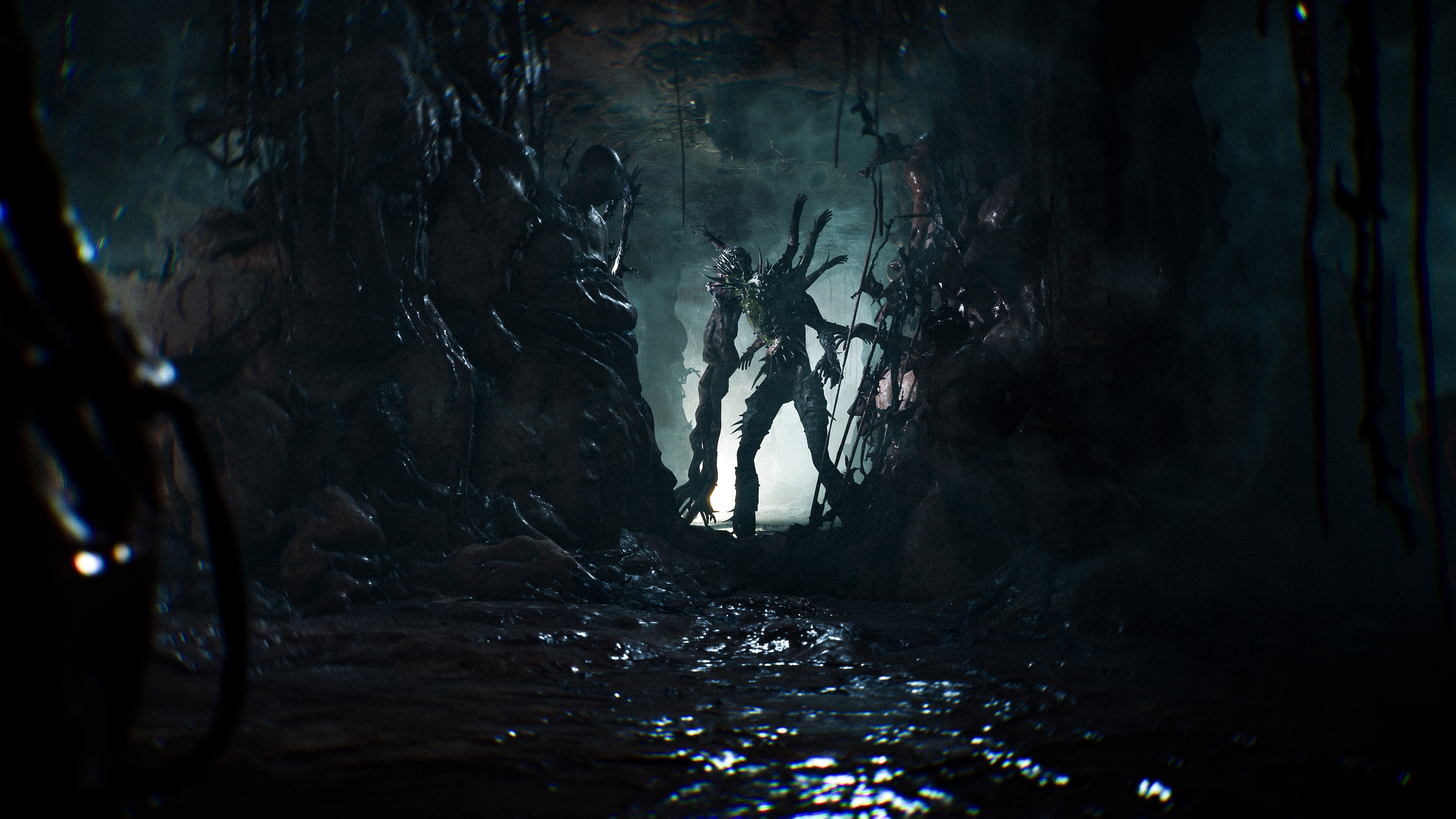
If there's one combat gimmick in Cronos that seems like it has potential to scare up some surprises, it's the way the monsters can combine into higher-level creatures, including absorbing the bodies of the ones you've already killed. The first tool I got my hands on was a flamethrower that roasts nearby corpses, preventing them from helping the next freak who comes along from 'roiding out. As with ammo, fuel is in limited supply.
Before I started playing, Zięba insisted that letting the monsters merge was very, very bad. But that process of, er, "absorption" takes time you can use to your advantage.
"We're not saying 'don't let them start to merge,' he says. If you let them start but you can interrupt them and that's part of your strategy, awesome. We're not leaning into there being only one way to play this game."
I'm hopeful that over time access to more weapons, enemy types and combat arenas reveal nuances I didn't see in the first couple hours, when a single mutant evolving into its tougher form by snacking on a corpse more or less meant I should restart at the checkpoint just before the combat encounter. But so far it seems like Cronos's setting is much more compelling than the combat within it.
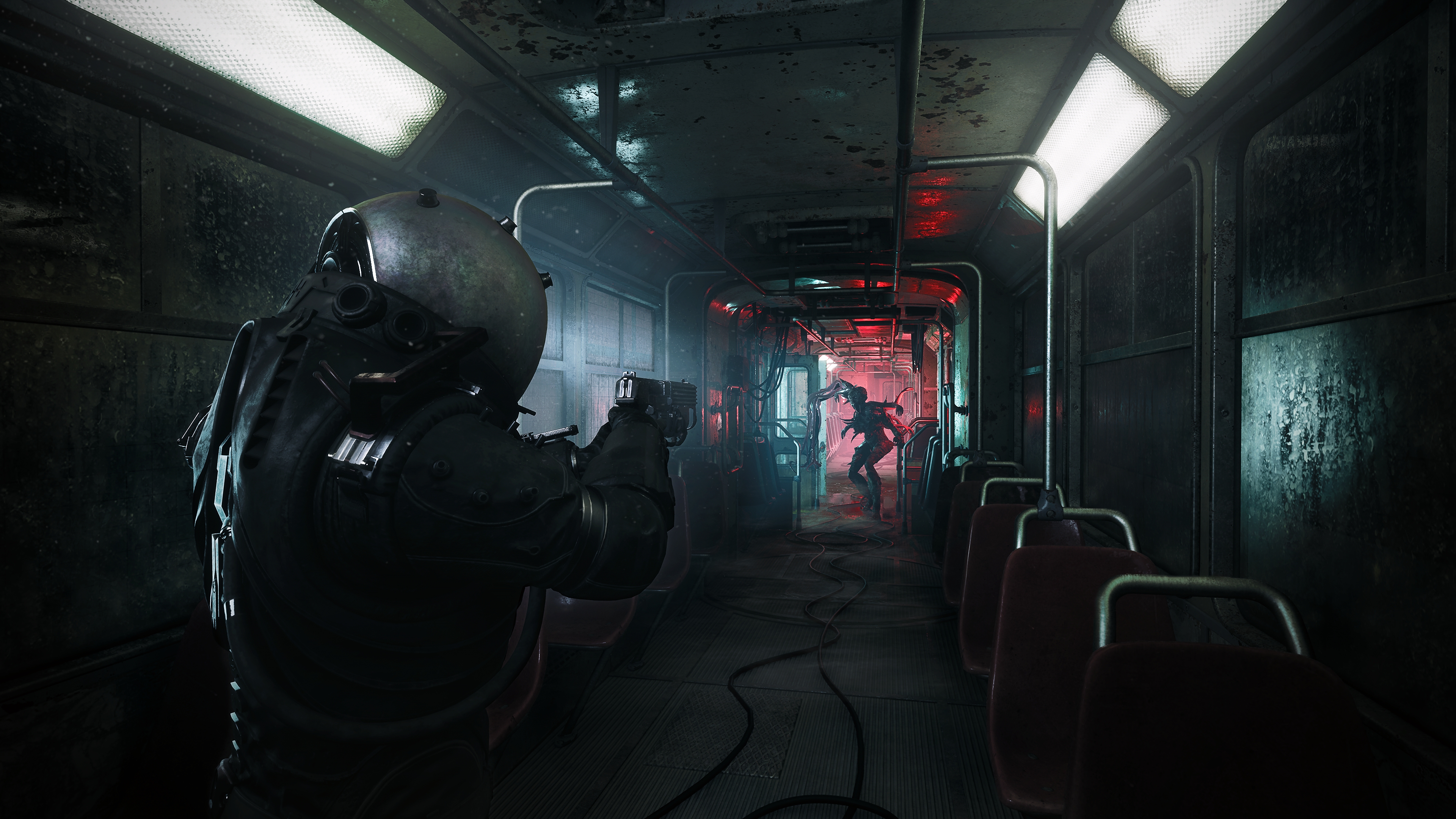
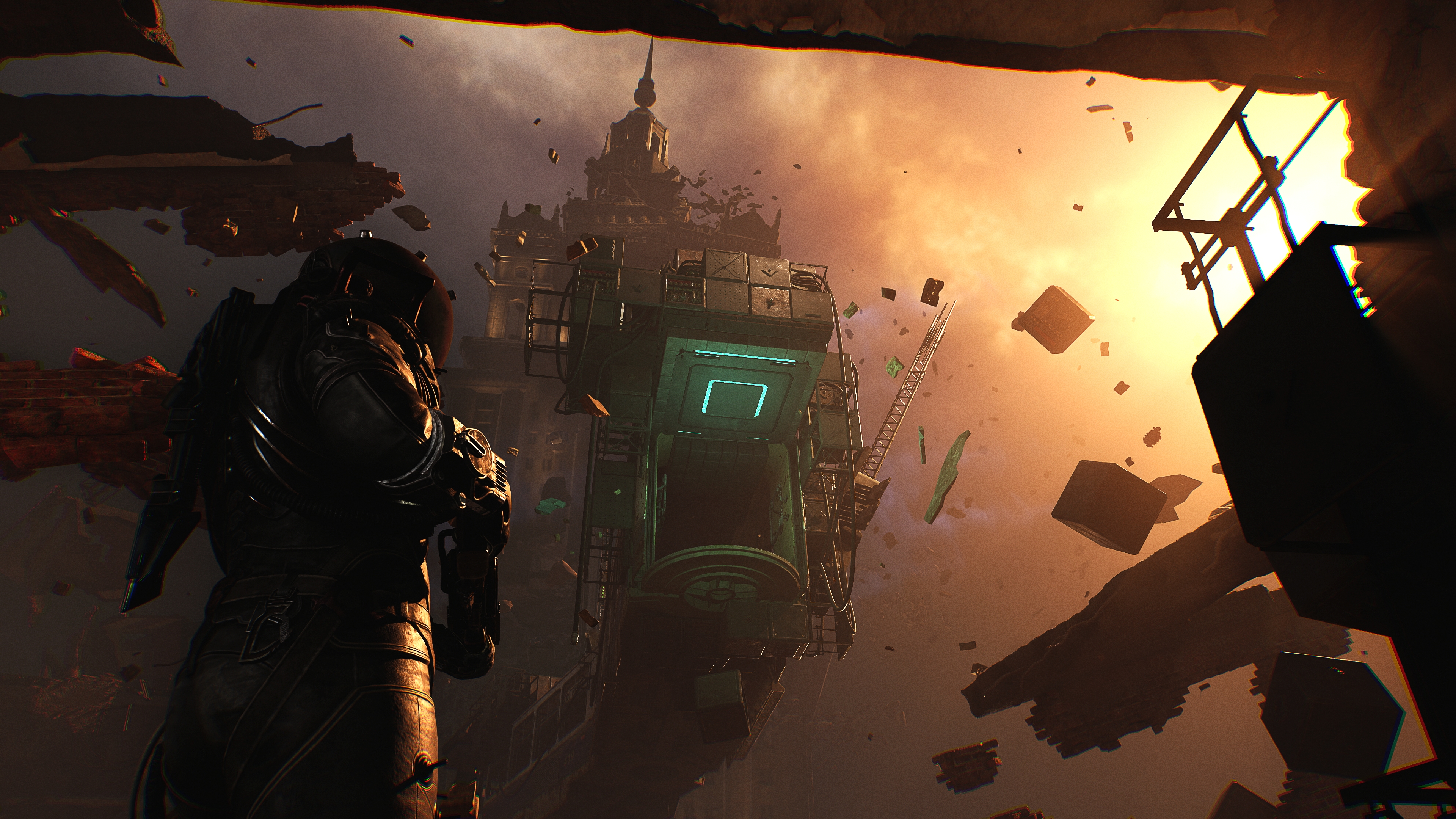
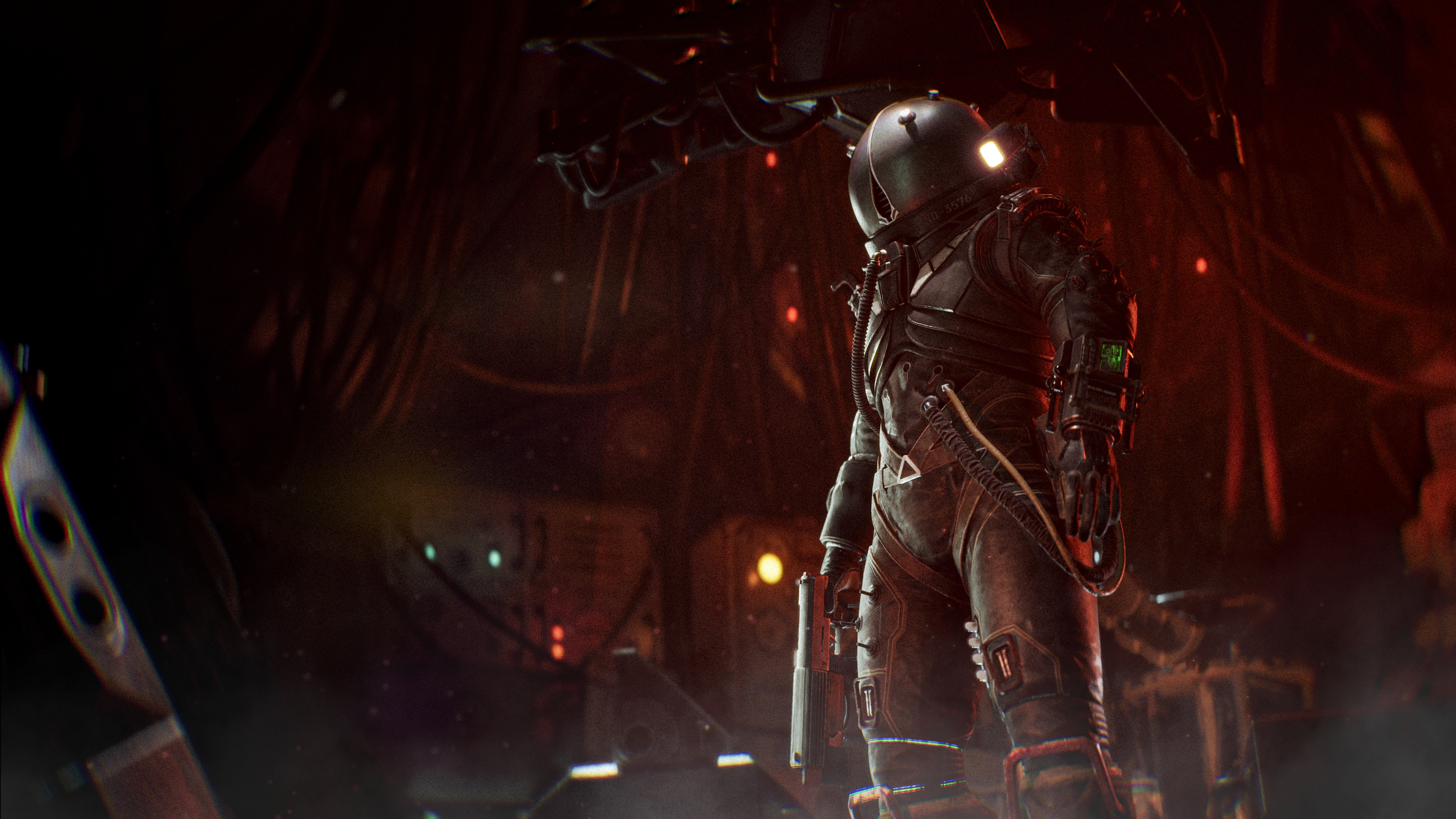
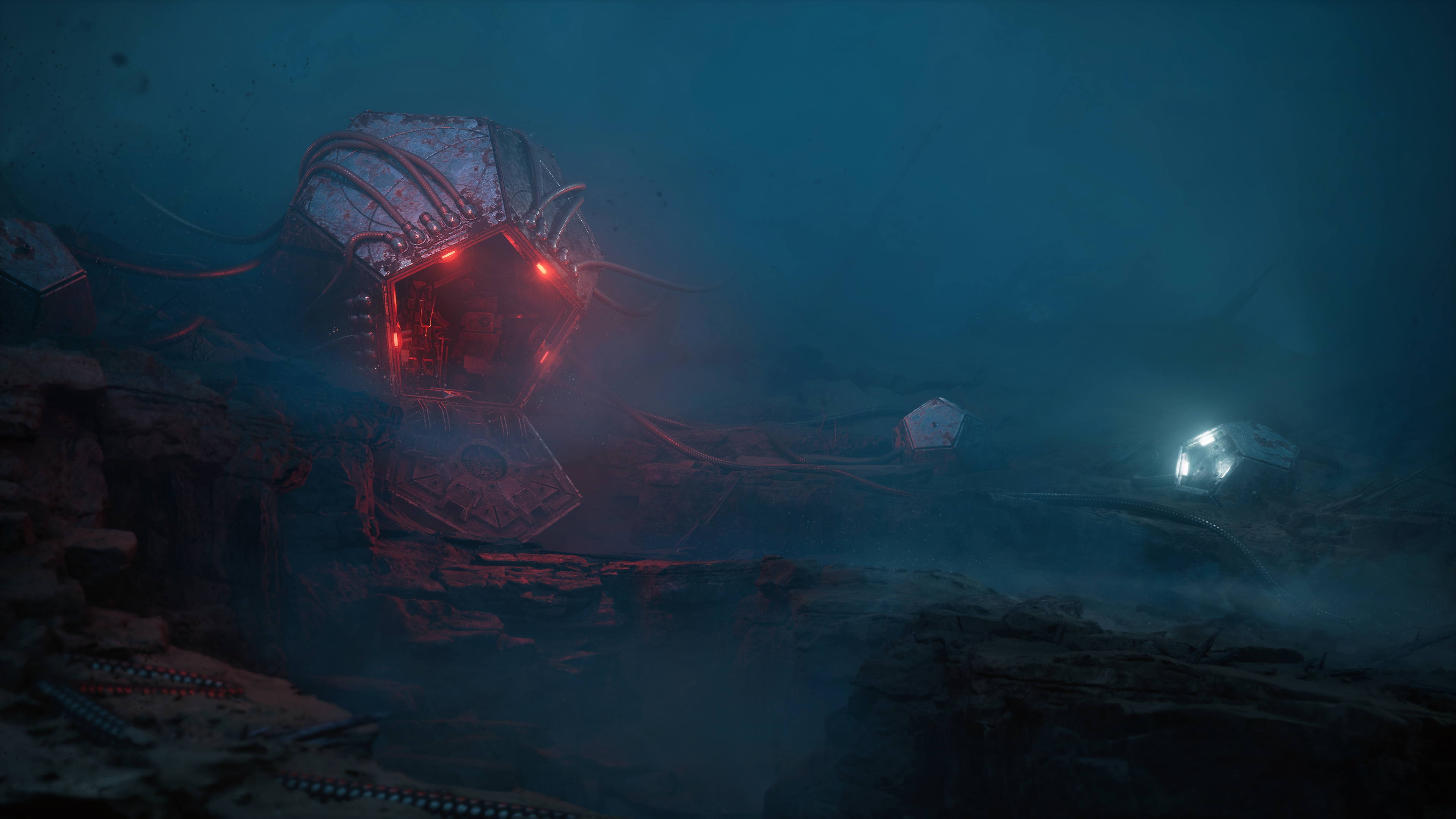
While Bloober has indeed set multiple games in Kraków, this is the first to focus on the working class ironworks district of Nowa Huta, which was once envisioned as a socialist utopia.
"I feel like many times there are [game] stories that connect to some topics in the 'real world,' like totalitarian systems, and we decided—don't invent, let's recreate," says Grzegorz. It will be more impactful. And now looking at this game at the end of production, it's sad to see that some things are dangerously relevant."
Zięba jumps in to elaborate: "The future [when the game is set] is fucked up, but then you jump to the past and it's also fucked up, but differently. We just used reality: the '80s in Poland was fucked up. And then we added the strange disease and the government was trying to cover it up, like the Soviet regime also was doing [in reality]."
There are sparks of hope in the past, but Cronos as a whole is meant to evoke a sense of dread rather than the more optimistic style of time travel in Back to the Future. Zięba likens the game to an inverted pyramid: while it starts with a very wide sci-fi premise, with the vague sense that you can figure out what's gone wrong and do something to fix it, the further you go the more specific it gets. "It starts to be more about individual stories, about a couple people trapped in a strange situation," he says.
Surviving horror
Cronos's demo ends just before I get to time travel myself, though not before I clear a fairly rote boss fight in a tenement flat. The boss is a dead ringer for one of Resident Evil 4's Iron Maidens, with weak spots I need to expose on certain parts of its body by lighting it on fire before blasting them with precision shots. Again, it's tense, but mostly comes down to running circles around the apartment to gain some distance and lead the boss past each conveniently placed explosive.
Thematically, I'm way more into what Bloober is doing with Cronos's bleak Soviet futurism than I was Silent Hill 2. But after the success of that game, they now have to survive the horrors of high expectations—and following in the footsteps of Resident Evil 4 and Dead Space, I can't think of much scarier than that.

1. Best overall:
HyperX Cloud Alpha
2. Best budget:
Corsair HS55 Stereo
3. Best wireless:
HyperX Cloud Alpha Wireless
4. Best mid-range wireless:
Turtle Beach Stealth 600 Gen 3
5. Best audiophile:
Beyerdynamic MMX 330 Pro
6. Best wireless audiophile:
Audeze Maxwell
7. Best for streaming:
Audio-Technica ATH-M50xSTS StreamSet
8. Best noise-cancelling:
AceZone A-Spire
9. Best earbuds:
Steelseries Arctis GameBuds

Wes has been covering games and hardware for more than 10 years, first at tech sites like The Wirecutter and Tested before joining the PC Gamer team in 2014. Wes plays a little bit of everything, but he'll always jump at the chance to cover emulation and Japanese games.
When he's not obsessively optimizing and re-optimizing a tangle of conveyor belts in Satisfactory (it's really becoming a problem), he's probably playing a 20-year-old Final Fantasy or some opaque ASCII roguelike. With a focus on writing and editing features, he seeks out personal stories and in-depth histories from the corners of PC gaming and its niche communities. 50% pizza by volume (deep dish, to be specific).
You must confirm your public display name before commenting
Please logout and then login again, you will then be prompted to enter your display name.


